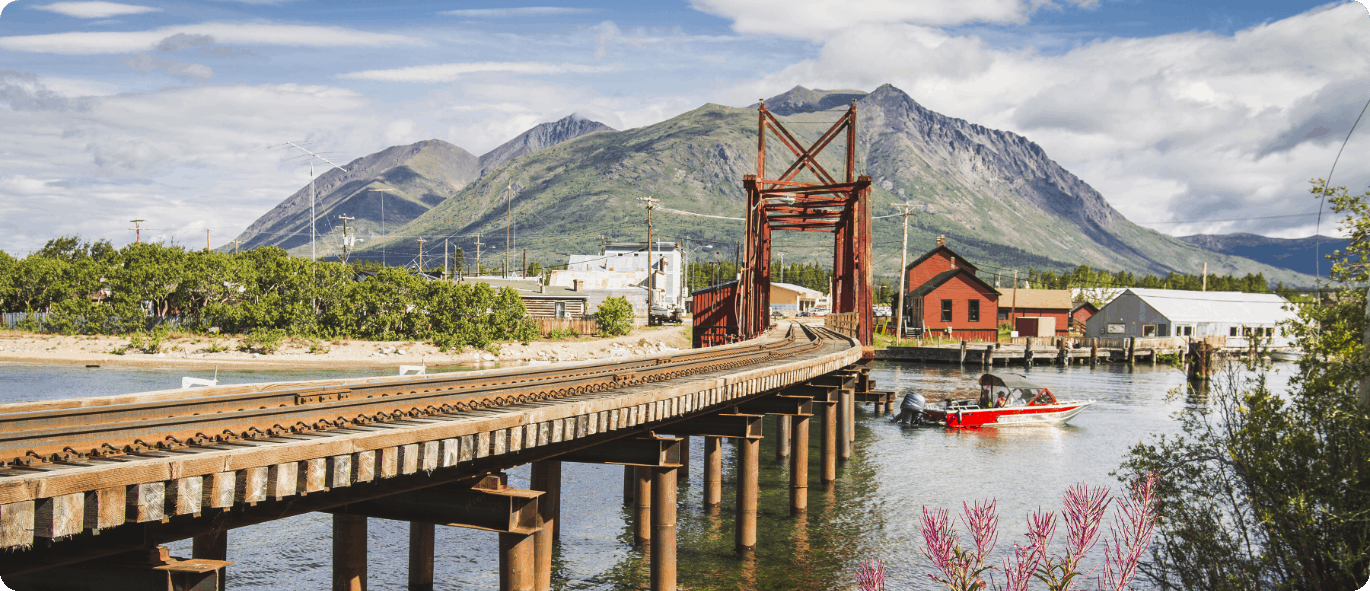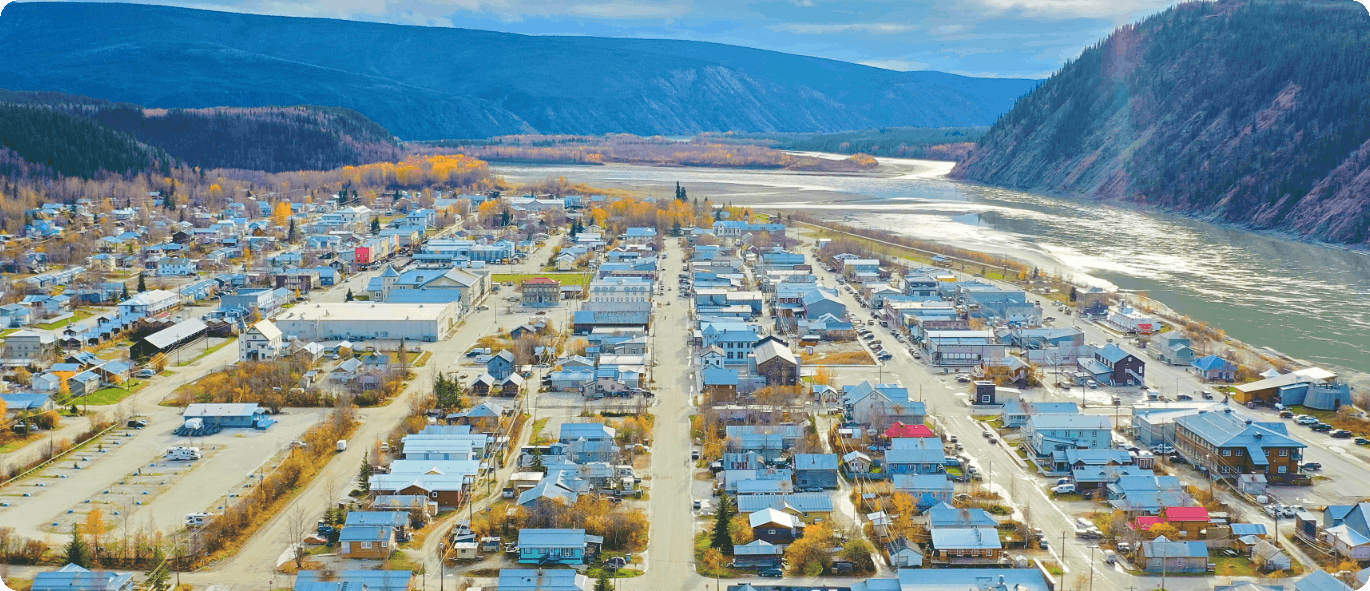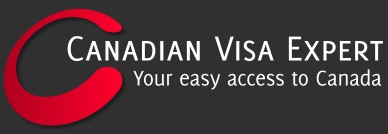Yukon Immigration
Yukon is Canada’s smallest territory and it has the lowest population of any Canadian territory or province.
Only about 35,874 people live in Yukon and most of them reside in Whitehorse, the largest city (population 25,085) and provincial capital.
Nonetheless, this resource-rich land has a larger than life history and offers golden opportunities to people who want to live in a beautiful natural environment via Yukon immigration.
Yukon is one of Canada’s three territories and is located north of the province of British Columbia, west of Northwest Territories, east of the U.S. state of Alaska, and south of the Arctic Ocean’s Beaufort Sea.
This scenic territory of Canada is carpeted in spruce trees, snow-capped mountains, rivers and lakes.
Yukon is home to Mount Logan, Canada’s highest peak, which soars 5,959 meters (19,551 feet) into the crisp, clean Canadian sky.
Some of the major bodies of water in Yukon include Atlin Lake, Bennett Lake, Kluane Lake, Kusawa Lake, Lake Laberge, Marsh Lake, Teslin River, Yukon River and White River.
Yukon is perhaps best known for the famous Klondike Gold Rush of 1896-1899, when large amounts of gold were discovered along the Klondike River and its tributaries (such as Bonanza Creek and Eldorado Creek), attracting approximately 100,000 prospectors who traveled great distances to seek their fortunes in northwestern Yukon Territory.
Dawson City, which is the second largest city in Yukon (population 1,375), became a gold rush “boomtown” during the Klondike Gold Rush, springing up where the Yukon River and Klondike River meet after gold was first discovered and eventually boasting a population of around 40,000 residents.
A famous American writer by the name of Jack London also traveled to Yukon during the Klondike Gold Rush, later writing his books White Fang and Call of the Wild with their settings based in Canada’s Yukon Territory.
Today, mining for gold, silver, copper, lead and zinc is Yukon’s top business sector, along with tourism, manufacturing, and hydroelectricity.
Yukon is also known worldwide for the 1,000-mile “Yukon Quest” sled dog race held each February in which “mushers” from around the globe compete in a challenging race that starts in Whitehorse, goes through Dawson City and finishes in Fairbanks, Alaska.

Whitehorse – The Provincial Capital
Whitehorse, Yukon’s provincial capital and largest city, is situated along the Yukon River, surrounded by pine forests, and offers views of Golden Horn Mountain, Mount Sumanik and Grey Mountain.
The spectacular Aurora Borealis (Northern Lights) can also be seen dancing in the evening sky from Whitehorse when the conditions permit.
Although Whitehorse is a small city (population 25,085), it has an international airport (Erik Nielsen Whitehorse International Airport) which can connect passengers with Dawson, Vancouver, Victoria, Edmonton, Calgary, Ottawa, and the German city of Frankfurt.
The top business sectors in Whitehorse include: government and public administration, trades, and industries that produce goods.
Some of the major events that are held in Whitehorse include the Yukon International Storytelling Festival, Adäka Cultural Festival and the start of the 1,000-mile Yukon Quest sled dog race.
Points of interest in and around Whitehorse include the MacBride Museum, S.S. Klondike, Yukon Transportation Museum, Lumel Glass Blowing Studio, Yukon Wildlife Preserve, Emerald Lake, and Miles Canyon.
Other activities available near Whitehorse are hiking, mountain biking, canoeing, kayaking, river rafting, skiing, snowmobiling, camping, fishing, golfing, and horseback riding.

Dawson City
Dawson City is located in northwestern Yukon where the Yukon River and Klondike River converge.
When you enter Dawson City, you might imagine yourself back in the Klondike Gold Rush era (minus the cars and trucks), as the buildings were constructed according to the styles of the 1890s.
The key business sectors in Dawson City and the nearby area include tourism, public service, healthcare, gold mining, accommodation and food services.
Millennials will feel at home living in Dawson City, since people 30-34 years of age are the biggest age group.
Average yearly household income in Dawson City is around $74,609 CAD and the average rent is only about $733 per month, so many of the residents have extra money available to save and/or spend on whatever they want.
Some of the big events that takes place each year is the Discovery Day celebration, Dawson City Music Festival, Yukon Riverside Arts Festival, and Dawson City International Short Film Festival.
As with Whitehorse and other locations in Yukon, the Northern Lights can often be seen in the evening hours from late-August until April.
Points of interest in and around Dawson include the Dawson City Museum, Dänojà Zho Cultural Centre, Jack London Museum, Klondike National Historic Site, Robert Service Cabin, Palace Grand Theatre, Sourdough Saloon, and Tombstone Territorial Park.
Yukon immigration is not for everyone, however, if you and your family enjoy the Great Outdoors, if you have an occupation related to mining, natural resources, public administration, healthcare or another in-demand field, and you can see yourself living in a small town or rural setting (perhaps, in a cozy log cabin with a fireplace), then Yukon immigration might be worth exploring.
Regardless of whether you move to Yukon or simply visit on vacation, this beautiful Canadian territory has many places and activities to enjoy!
Immigrate to Canada for a Beautiful Future!
DISCLAIMER: This guide is not and shall not be considered as professional or expert advice.
